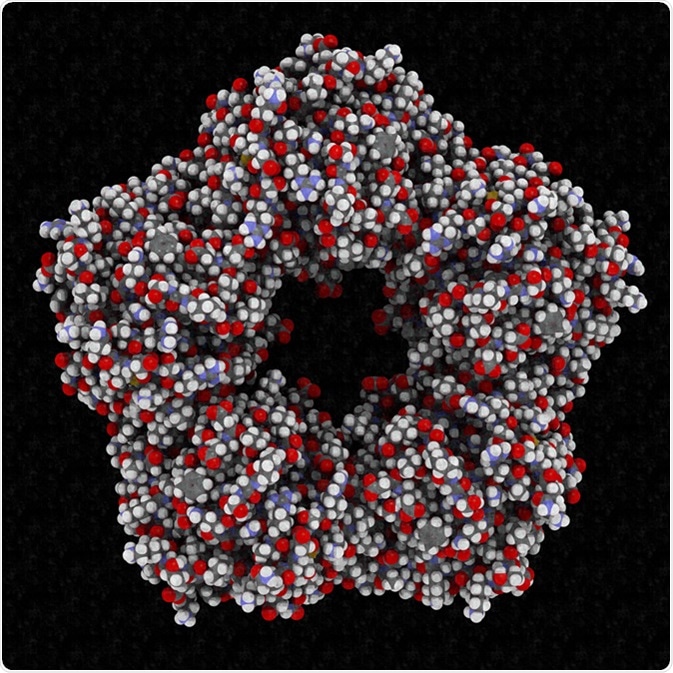Skip to:
Stroke, a complication of atrial fibrillation, can be fatal. Identification of biomarkers to predict stroke may help treat those at highest risk. Given the association between atrial fibrillation and other poor disease outcomes, biomarker identification has applications for conditions other than stroke.

Image Credit: MAD.vertise / Shutterstock
Stroke and its Pathways
Stroke can be very hard to predict and therefore try to hinder, because it is the result of many different pathophysiologies. The most common pathways associated with stroke are inflammation, endothelial dysfunction, thrombosis, and oxidative stress. In some cases, the cause, such as atrial fibrillation, may only be discovered after a stroke or other complication.
These pathways are not always reflected in the commonly used risk factors. Therefore, stroke is sometimes not accurately predicted, and the harmful outcomes stroke can have, such as disability and death, are often not predicted. One of the original drivers for identifying biomarkers was to improve the ability to foresee and manage adverse consequences of stroke, following the success of biomarkers in other cardiovascular conditions.
Ischemic Stroke
Biomarkers and Risk Scores
Biomarkers have been continuously studied for the past decade with several used for risk scores. Among these are high-sensitivity C reactive protein (hsCRP), interleukin-6 (IL-6), and N-terminal pro-brain natriuretic peptide (NT-proBNP). These biomarkers are related to inflammatory cascades, which are highly linked to the risk of stroke.

C-reactive protein (CRP, human) inflammation biomarker, chemical structure. 3D rendering. Infections and inflammation cause increased blood levels of this protein. Atoms are represented as spheres. StudioMolekuul / Shutterstock
When biomarkers are present at abnormal levels, the risk of stroke and adverse stroke outcomes increases. Studies indicate that the elderly, particularly men, and those with high BMI have increased risk of stroke. Furthermore, those with elevated levels of BNP and fibroblast growth factor 23 (FGF-23), and reduced levels of TNF-related apoptosis-induced ligand receptor 2 (TRAIL-R2) have been identified as having a higher stroke risk.
The use of biomarkers is a stark contrast to how other risk scores have operated. Some very established risk scores for stroke, such as the CHA2-DS2-VASc score and the HAS-BLED score, base their risk assessment on other comorbid symptoms. For example, patients with diabetes or old age are seen as being more at risk of stroke. However, evidence suggests molecular biomarkers, such as those mentioned above, can greatly improve the ability to predict stroke risk compared to other methods.
As a result, some new forms of risk scores have been developed which combine the patient history and biomarkers to a more detailed risk score. Chief among these is the ABC stroke score, which incorporates information on age, biomarkers, and clinical history.
What are the Benefits of Using Biomarkers?
The risk scores are used to help doctors decide if the risk of stroke is high enough to warrant anticoagulation medicine use. Studies so far point to that biomarker-based risk scores improve assessment of which treatments patients will benefit from.
It has also been indicated that biomarkers can help inform which types of anticoagulant medication are of benefit for the patient. For example, ABC-stroke scores using high-sensitive troponin T, NT-proBNP, and growth differentiation factor 15 were indicated to be able to detect which patients would benefit from non-vitamin K antagonist anticoagulant pills (non-warfarin blood thinners).
Biomarkers have also been shown to be able to predict the severity of the adverse outcomes of stroke. Studies have shown clear linear relationships between biomarkers present at high levels and the risk of disability, mortality, and vascular events. Such studies looked primarily at hsCRP, complement C3, matrix metalloproteinase-9, hepatocyte growth factor, and antiphosphatidylserine antibodies, with the highest levels of these associated with higher risk of mortality.
Current efforts focus on implementing these biomarkers in clinical settings, and the best ways to do this. To make it easier for clinics, studies attempt to minimize the number of biomarkers required to predict stroke risk, but this can be difficult given that stroke is influenced by so many different pathways. For example, for stroke as a consequence of atrial fibrillation, BNP and FGF-23 are the best biomarkers, but this may not hold true for inflammation-related stroke.
Further Reading
Last Updated: Jan 24, 2020